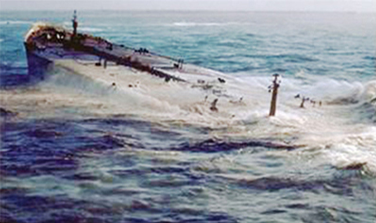We will realize the people's dreams, The safest sea routes in the world
PSC Overview
Port State Control (PSC) is a system whereby port states inspect foreign ships visiting their ports to verify compliance with international safety, security, and environmental standards as outlined in international conventions. If deficiencies are identified during inspections, the port state takes necessary actions, including detention, until these deficiencies are rectified. In Korea, this is managed by the Ministry of Oceans and Fisheries.
Overview
Traditionally, ships were considered an extension of their Flag State’s territory and enjoyed extraterritorial rights even when docked in foreign ports. It was the Flag State’s responsibility to ensure compliance with various safety standards. However, after World War II, maritime traffic increased dramatically, resulting in the emergence of new maritime nations, some of which lacked the capability to adequately perform their responsibilities as Flag States. This led to the proliferation of sub-standard vessels, posing significant risks to maritime safety and the marine environment of coastal and port states.
To mitigate these risks, Port State Control officers (PSCOs) inspect foreign vessels to ensure adherence to international standards. Ships with identified deficiencies face sanctions, including possible detention.
Objective
Marine accidents can cause substantial loss of life and property. Accidents involving vessels carrying hazardous materials pose severe risks of environmental disasters. The primary objective of PSC is to protect the marine environment and safeguard human lives and property from maritime incidents caused by sub-standard foreign ships. The International Maritime Organization (IMO) and the International Labour Organization (ILO) have established international conventions for PSC implementation. IMO member states must ensure compliance with these conventions.
Legal Basis for PSC
- International Load Line Convention (LL66, 1966)
- Convention on the International Regulations for Preventing Collisions at Sea (COLREG 72, 1972)
- ILO Convention No. 147 (Minimum Standards in Merchant Ships, 1976)
- International Convention on Tonnage Measurement of Ships (ITC69, 1969)
- International Convention for the Safety of Life at Sea and its 1978 Protocol (SOLAS 74/78)
- International Convention for the Prevention of Pollution from Ships and its 1978 Protocol (MARPOL 73/78)
- International Convention on Standards of Training, Certification and Watchkeeping for Seafarers (STCW 78/95)
- Ship Safety Act
- Ship Act
- Seafarers Act
- Ship Officers Act
- Framework Act on Maritime Safety
- Marine Environment Management Act
- International Ship and Port Facility Security Act
Maritime Accidents and International Regulatory Responses by Year
| Year | Accident | Regulatory Response | Description |
|---|---|---|---|
| 1912 | Sinking of the Titanic | Adoption of SOLAS Convention (1914) | Strengthened maritime safety standards |
| 1967 | Grounding of the Torrey Canyon | Intervention Convention (1969), CLC Convention (1969) | Coastal state intervention in accidents |
| 1978 | Grounding of the Amoco Cadiz | MARPOL (1978), SOLAS Protocol (1978), STCW (1978) | Strengthened IMO response; emergence of Port State principle |
| 1987 | Herald of Free Enterprise | Adoption of ISM Code | Enhanced human element inspections |
| 1990 | Scandinavian Star fire incident | Adoption of ISM Code | Enhanced human element inspections |
| 2001 | September 11 terrorist attacks | Adoption of ISPS Code | Enhanced security for ships and ports |
Deficiency Action Codes
| Action Code | Description |
|---|---|
| 10 | Deficiency rectified |
| 15 | Rectify deficiency at next port |
| 16 | Rectify deficiency within 14 days |
| 17 | Rectify deficiency before departure |
| 18 | Rectify deficiency within 3 months |
| 30 | Detainable deficiency |
| 99 | Other (specify) |


